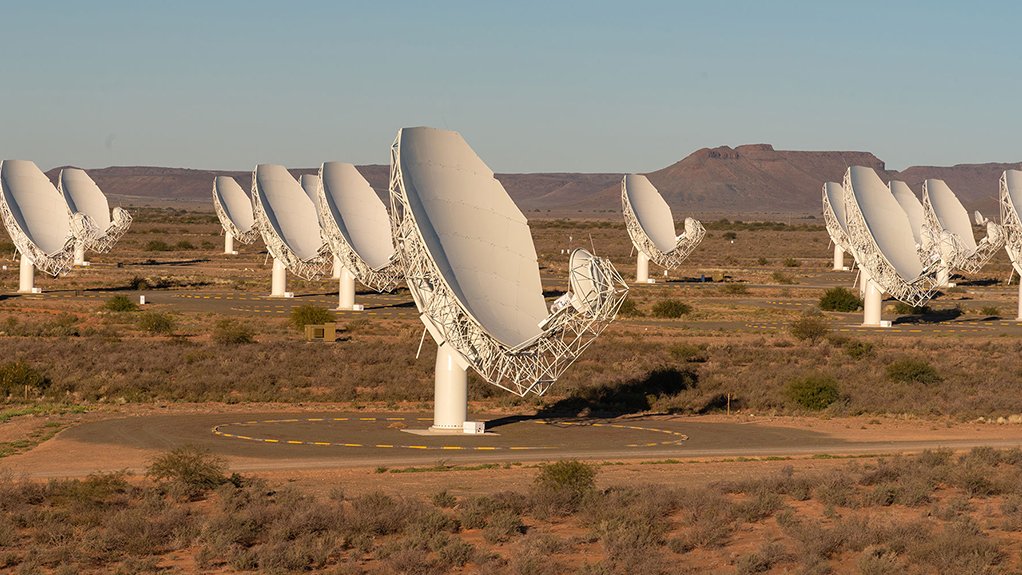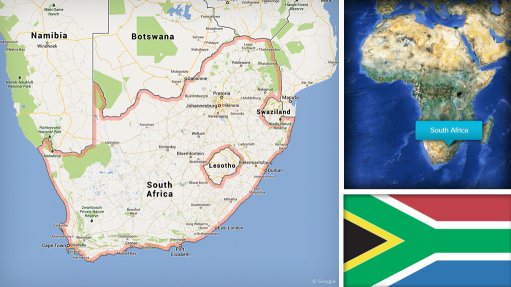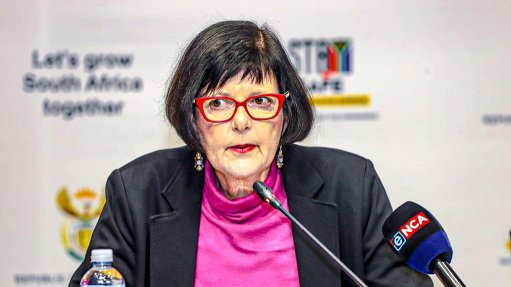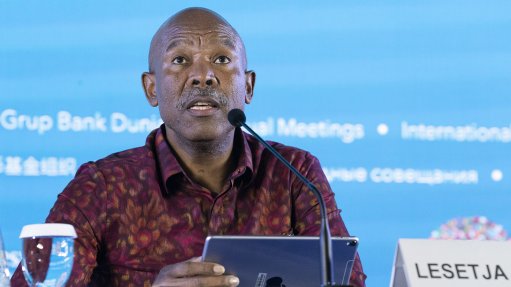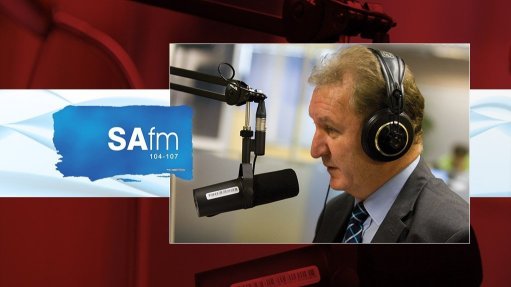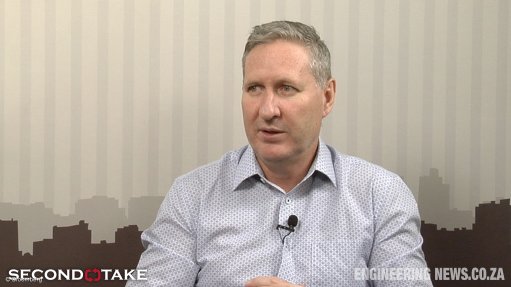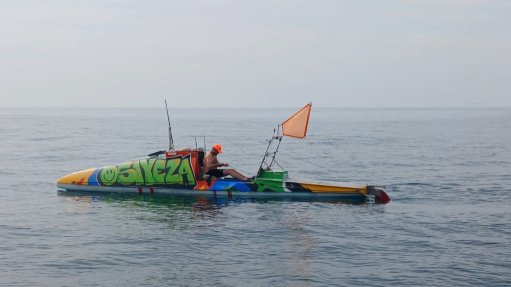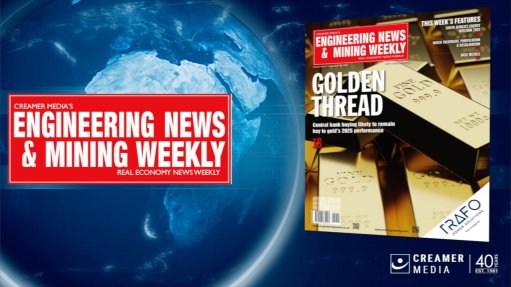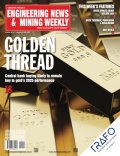South Africa’s MeerKAT radio telescope team awarded prestigious international award
South Africa’s MeerKAT radio telescope array team has been awarded the Royal Astronomical Society’s (RAS’) prestigious Group Achievement Award for 2023. The award was made, in the words of the RAS citation, “for a series of spectacular observations in radio astronomy, the highlight being the images of the Galactic Centre region and the spectacular radio bubbles. In addition, the MeerKAT team has supported the development of science and technology in Africa and stress-tested technology for the Square Kilometre Array (SKA) [international radio telescope programme].”
The MeerKAT has been developed, and is operated by what is now designated as the South African Radio Astronomy Observatory (SARAO). But, as SARAO itself pointed out in its press release, the greater MeerKAT team extends beyond the observatory itself and embraces a diversity of institutions around the world.
“On behalf of the team of scientists, engineers and technicians that developed the MeerKAT telescope from an ambitious notion into a tangible scientific instrument delivering extraordinary early science results, [we express] gratitude to the RAS for the generous recognition of the technical and scientific achievement associated with this Group Achievement Award,” stated the SARAO. “The MeerKAT project derived from the aspiration to have a South African SKA precursor telescope that would be a powerful instrument in its own right. This award is accepted with pride because it confirms the successful rendition of this aspiration into physical reality on African soil.”
The MeerKAT team is the ninth winner of the Group Achievement Award. The award places it in the very top rank of major astronomy and astrophysics programmes and instruments active today. The previous winners were the Laser Interferometer Gravitational-Wave Observatory (LIGO) team, in 2017; the Planck team (2018); the Galaxy Zoo team (2019); the Astropy Project team (2020); the Event Horizon Telescope (EHT) team (2021); and the EAGLE simulations team (2022).
LIGO started the era of directly-detected gravitational-wave astronomy. Planck was a European Space Agency space telescope that operated from 2009 to 2013 and mapped the cosmic microwave background (relic radiation left over from the Big Bang, with which our universe started) in unprecedented detail. Galaxy Zoo is on ongoing project, which is focused on classifying galaxies by their shape and structure, thereby helping scientists understand how galaxies form and evolve; remarkably, this work is done by amateur scientists in their spare time, Galaxy Zoo providing the platform. The Astropy Project is actually a computer software project, aimed at creating a common core software package for the global astronomy, astrophysics and cosmology communities, permitting interoperability between research teams. The EHT captured the first direct image of a black hole (strictly speaking, of the shadow cast by the black hole on its surrounding disk of highly energetic matter), and continues its programme today. The EAGLE (Evolution and Assembly of GaLaxies and their Environments) team is focused on large-scale hydrodynamic simulations of what is called the Lambda Cold Dark Matter universe, with the primary objective of elucidating the formation of galaxies and their co-evolution with their associated and surrounding gas clouds.
MeerKAT is currently being extended. Its success, SARAO noted, has established that the scientific and technological preconditions for setting up the SKA-Mid telescope in South Africa have been met. (The SKA will be divided into a middle-frequency array in South Africa, which will incorporate MeerKAT, and a low-frequency array, in Australia.)
Comments
Press Office
Announcements
What's On
Subscribe to improve your user experience...
Option 1 (equivalent of R125 a month):
Receive a weekly copy of Creamer Media's Engineering News & Mining Weekly magazine
(print copy for those in South Africa and e-magazine for those outside of South Africa)
Receive daily email newsletters
Access to full search results
Access archive of magazine back copies
Access to Projects in Progress
Access to ONE Research Report of your choice in PDF format
Option 2 (equivalent of R375 a month):
All benefits from Option 1
PLUS
Access to Creamer Media's Research Channel Africa for ALL Research Reports, in PDF format, on various industrial and mining sectors
including Electricity; Water; Energy Transition; Hydrogen; Roads, Rail and Ports; Coal; Gold; Platinum; Battery Metals; etc.
Already a subscriber?
Forgotten your password?
Receive weekly copy of Creamer Media's Engineering News & Mining Weekly magazine (print copy for those in South Africa and e-magazine for those outside of South Africa)
➕
Recieve daily email newsletters
➕
Access to full search results
➕
Access archive of magazine back copies
➕
Access to Projects in Progress
➕
Access to ONE Research Report of your choice in PDF format
RESEARCH CHANNEL AFRICA
R4500 (equivalent of R375 a month)
SUBSCRIBEAll benefits from Option 1
➕
Access to Creamer Media's Research Channel Africa for ALL Research Reports on various industrial and mining sectors, in PDF format, including on:
Electricity
➕
Water
➕
Energy Transition
➕
Hydrogen
➕
Roads, Rail and Ports
➕
Coal
➕
Gold
➕
Platinum
➕
Battery Metals
➕
etc.
Receive all benefits from Option 1 or Option 2 delivered to numerous people at your company
➕
Multiple User names and Passwords for simultaneous log-ins
➕
Intranet integration access to all in your organisation



